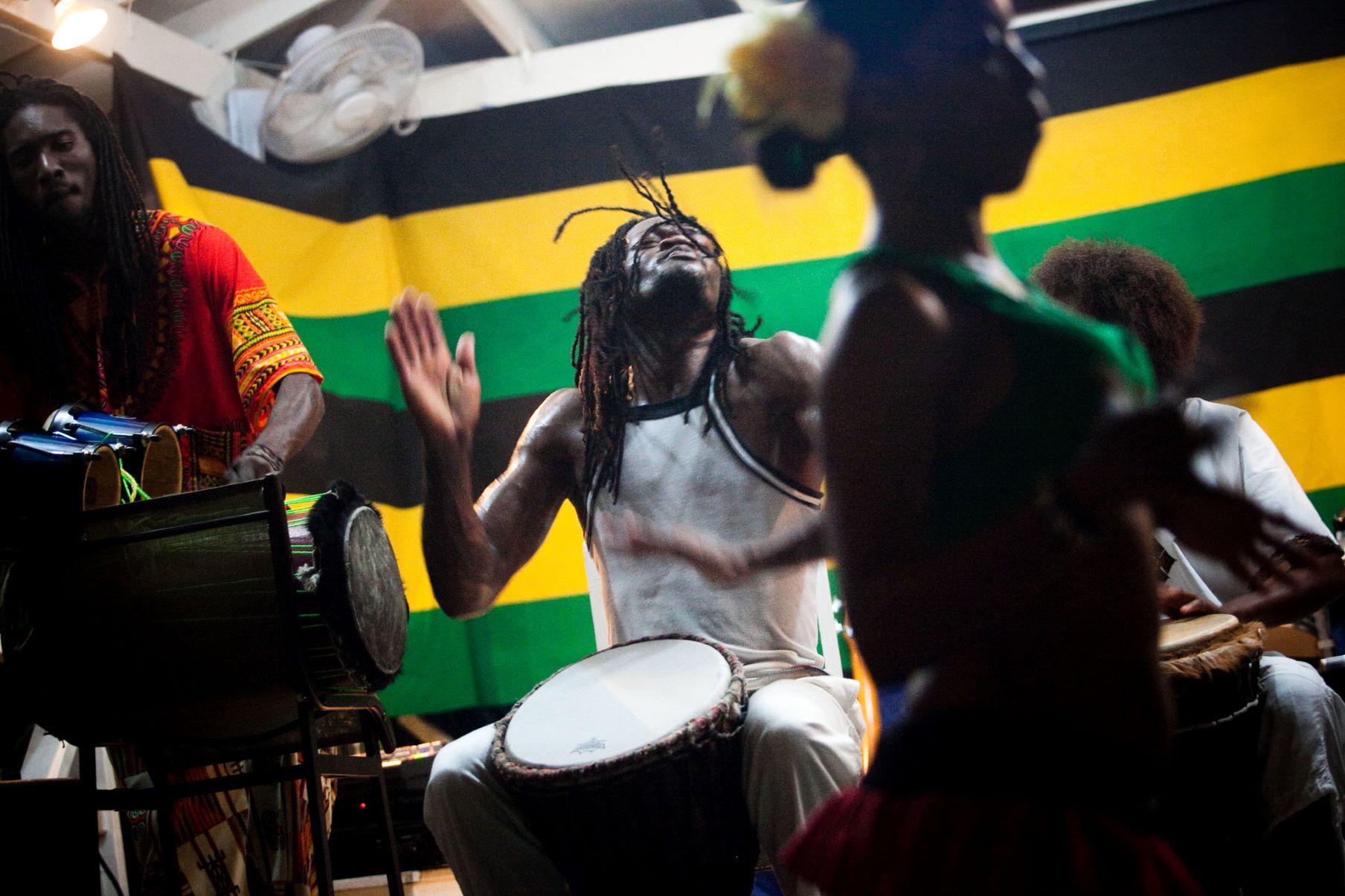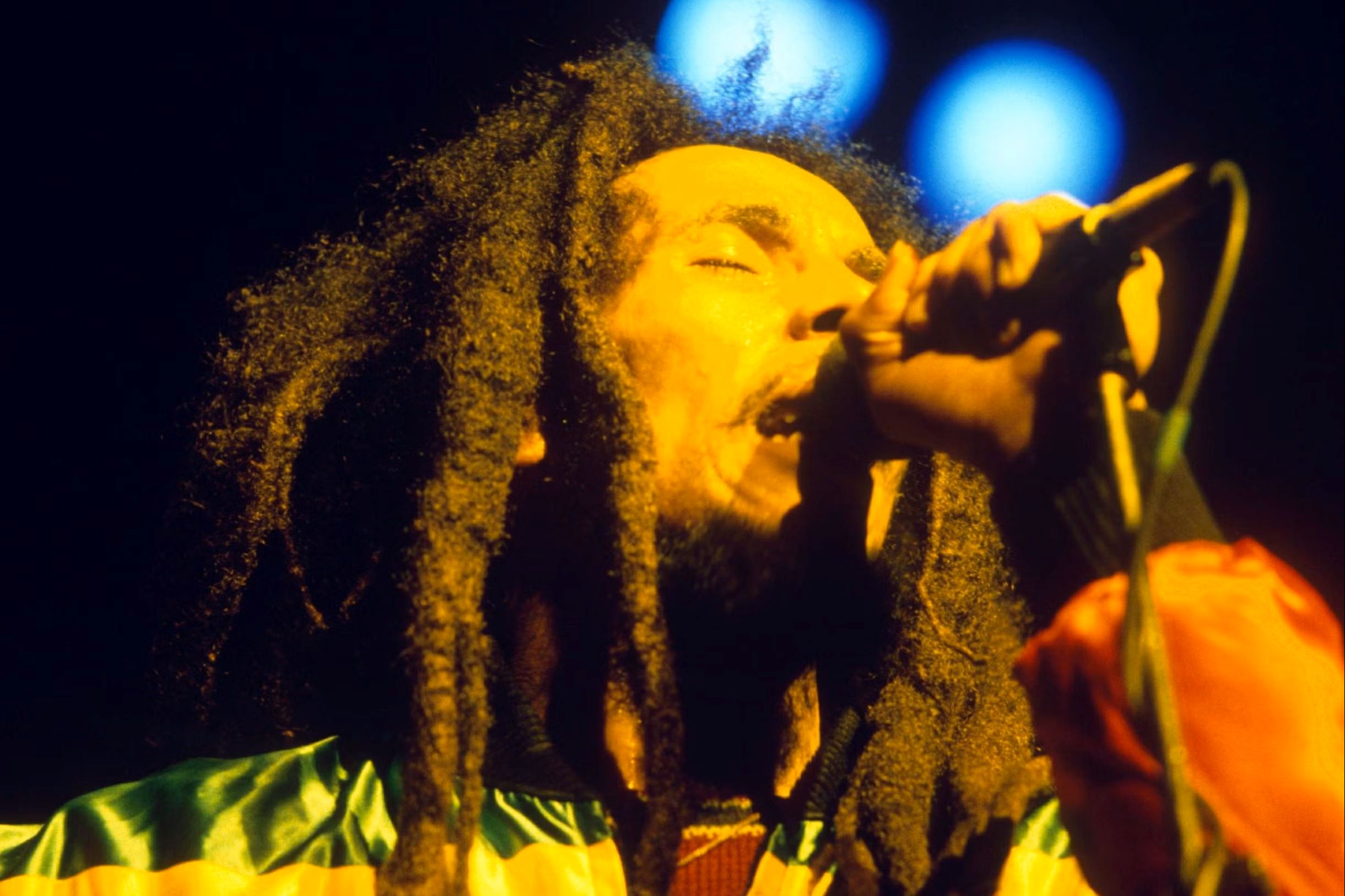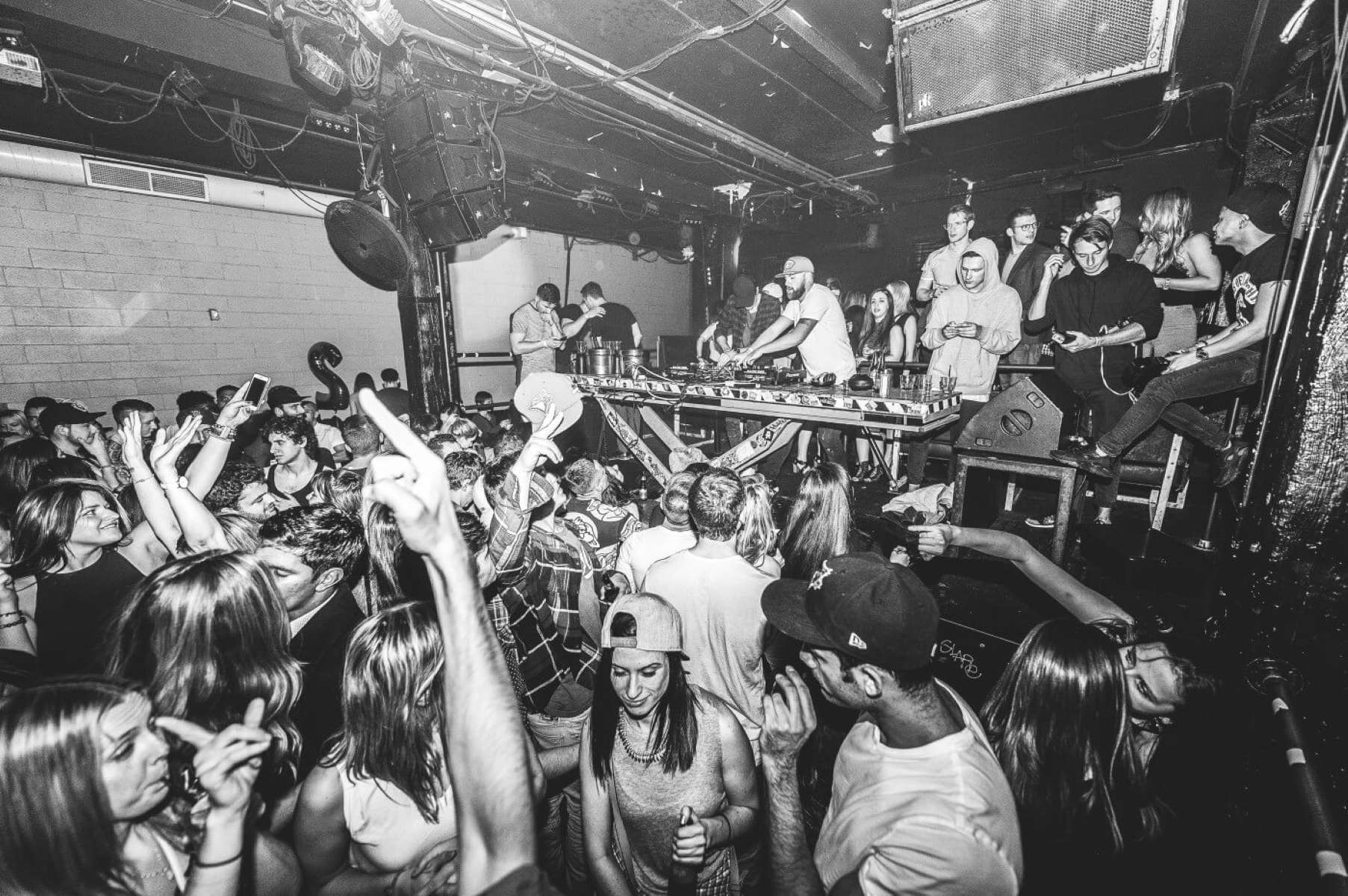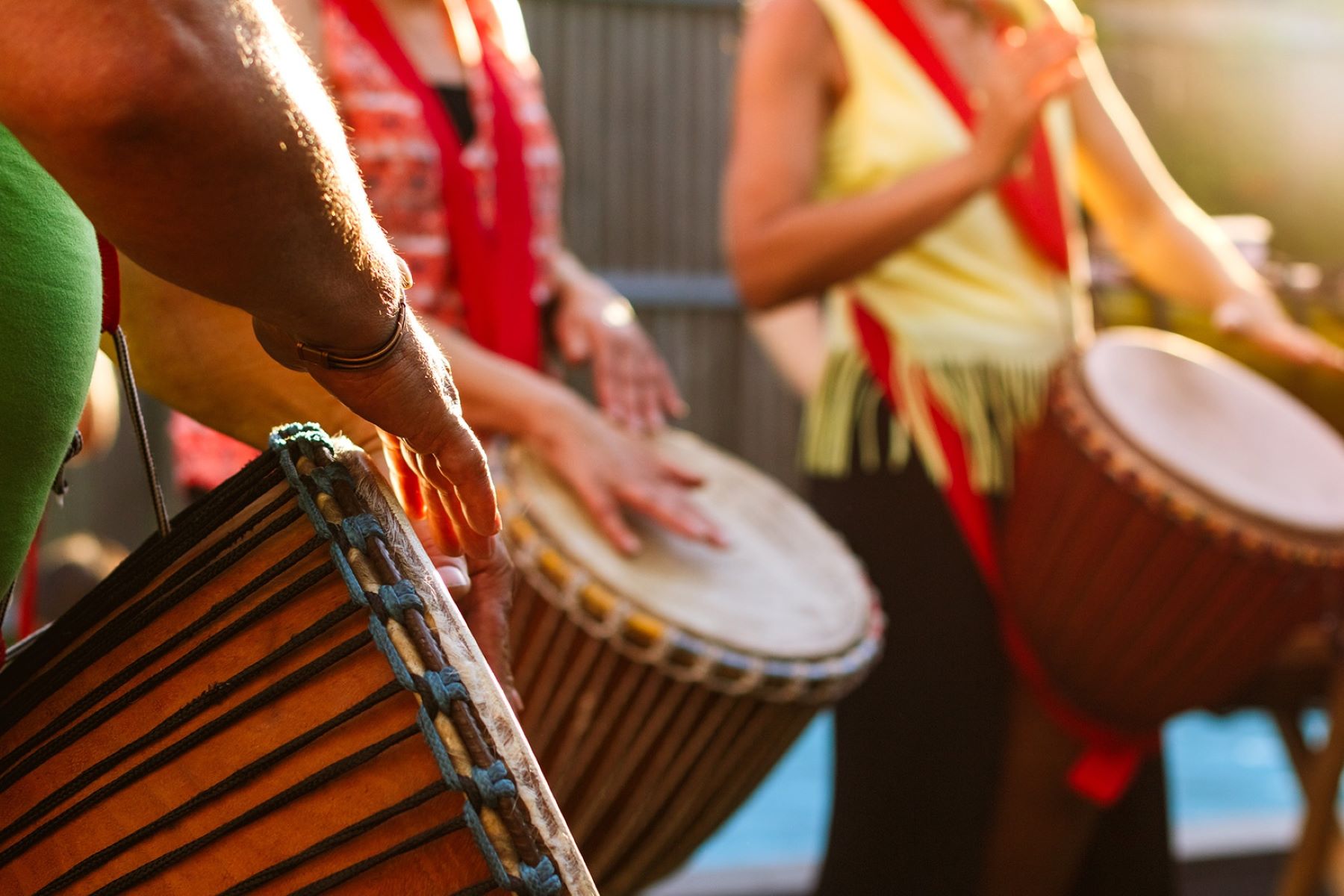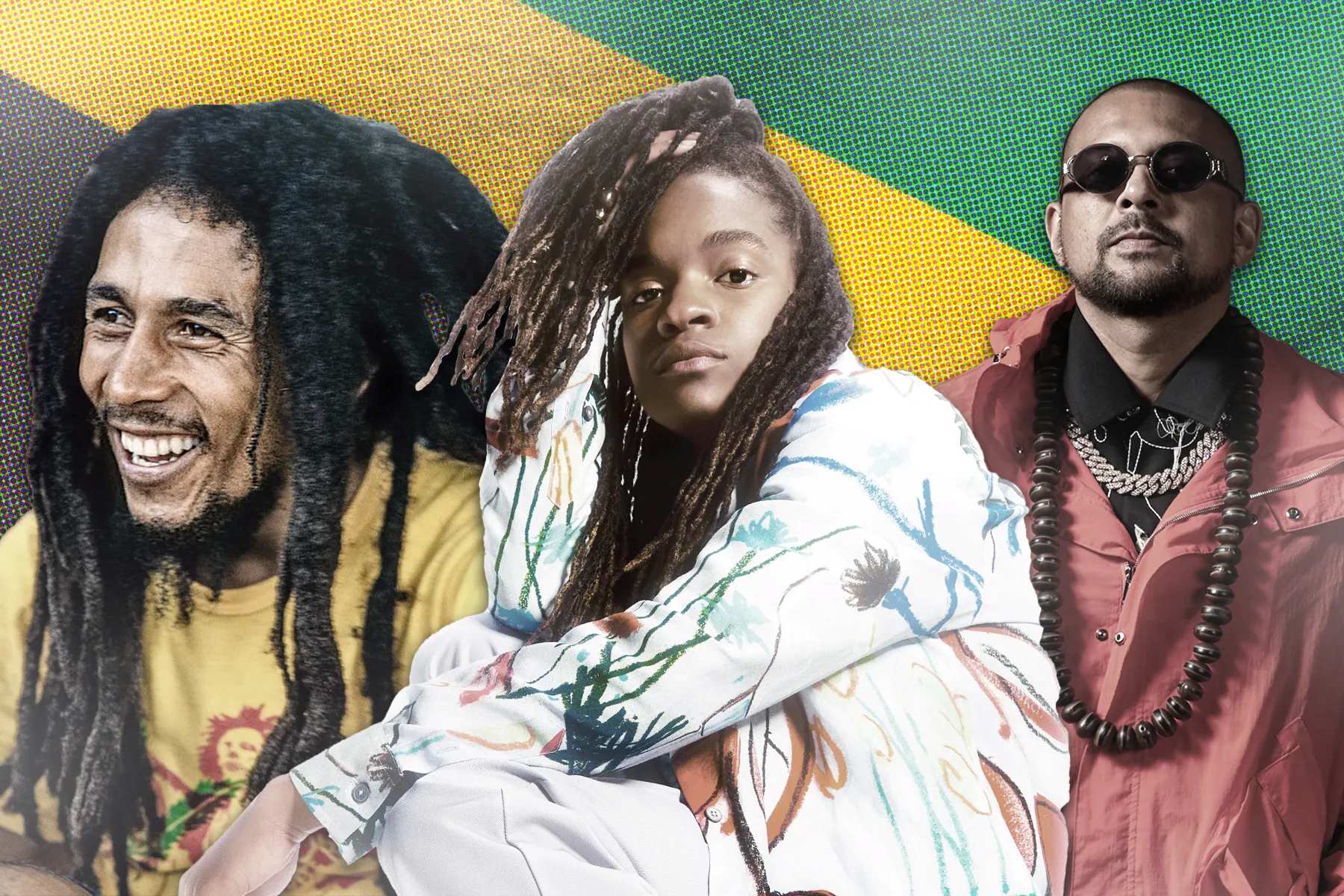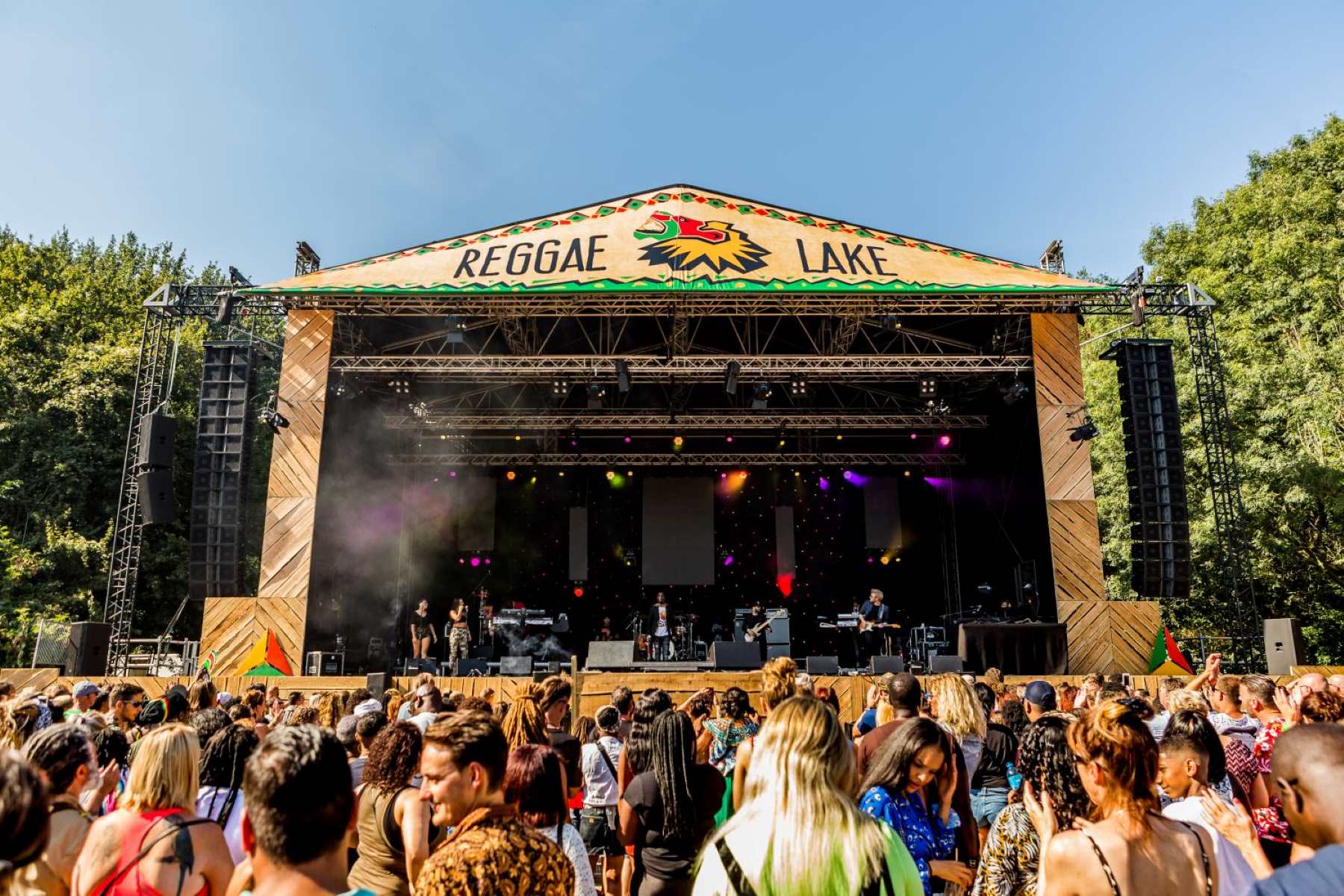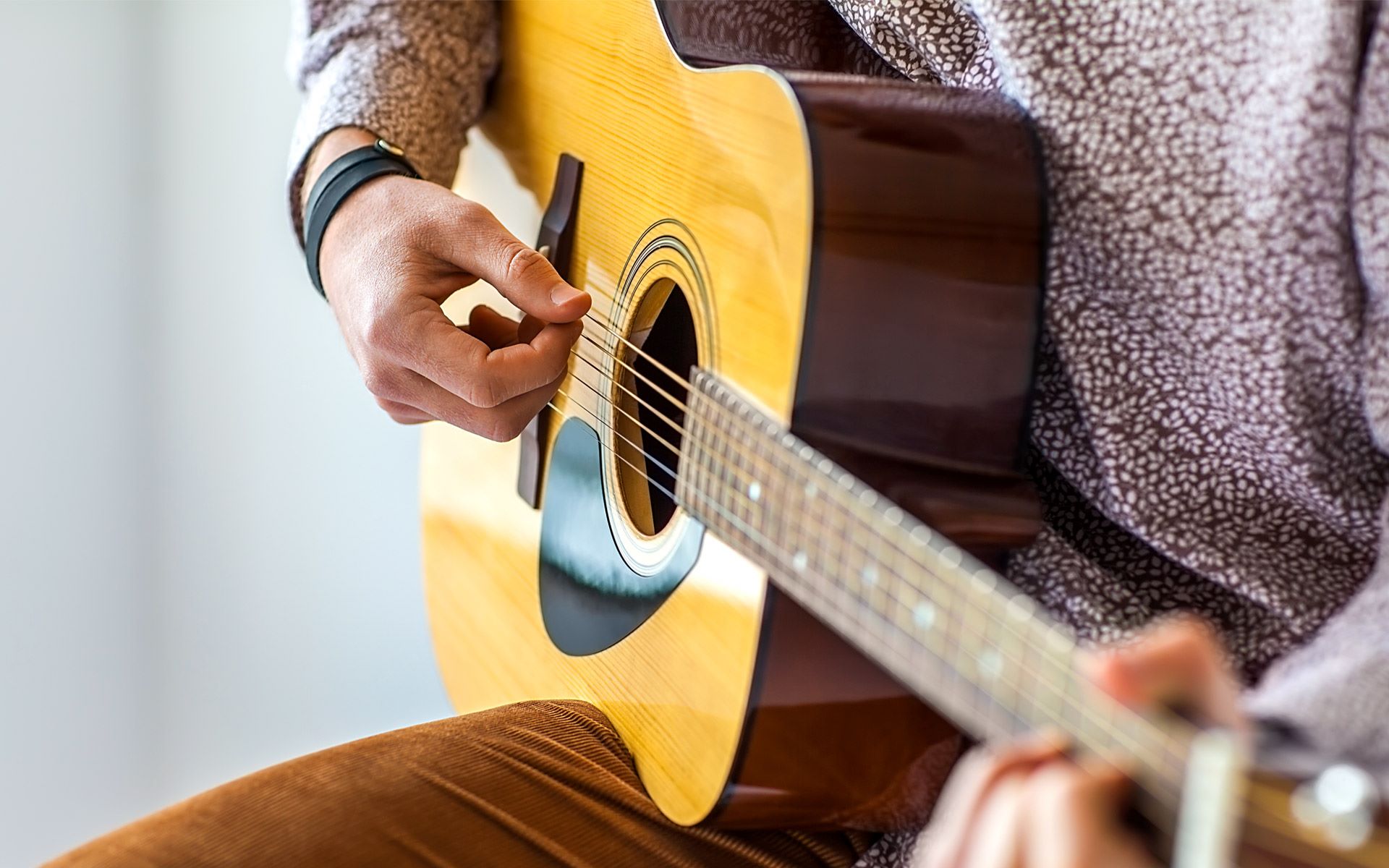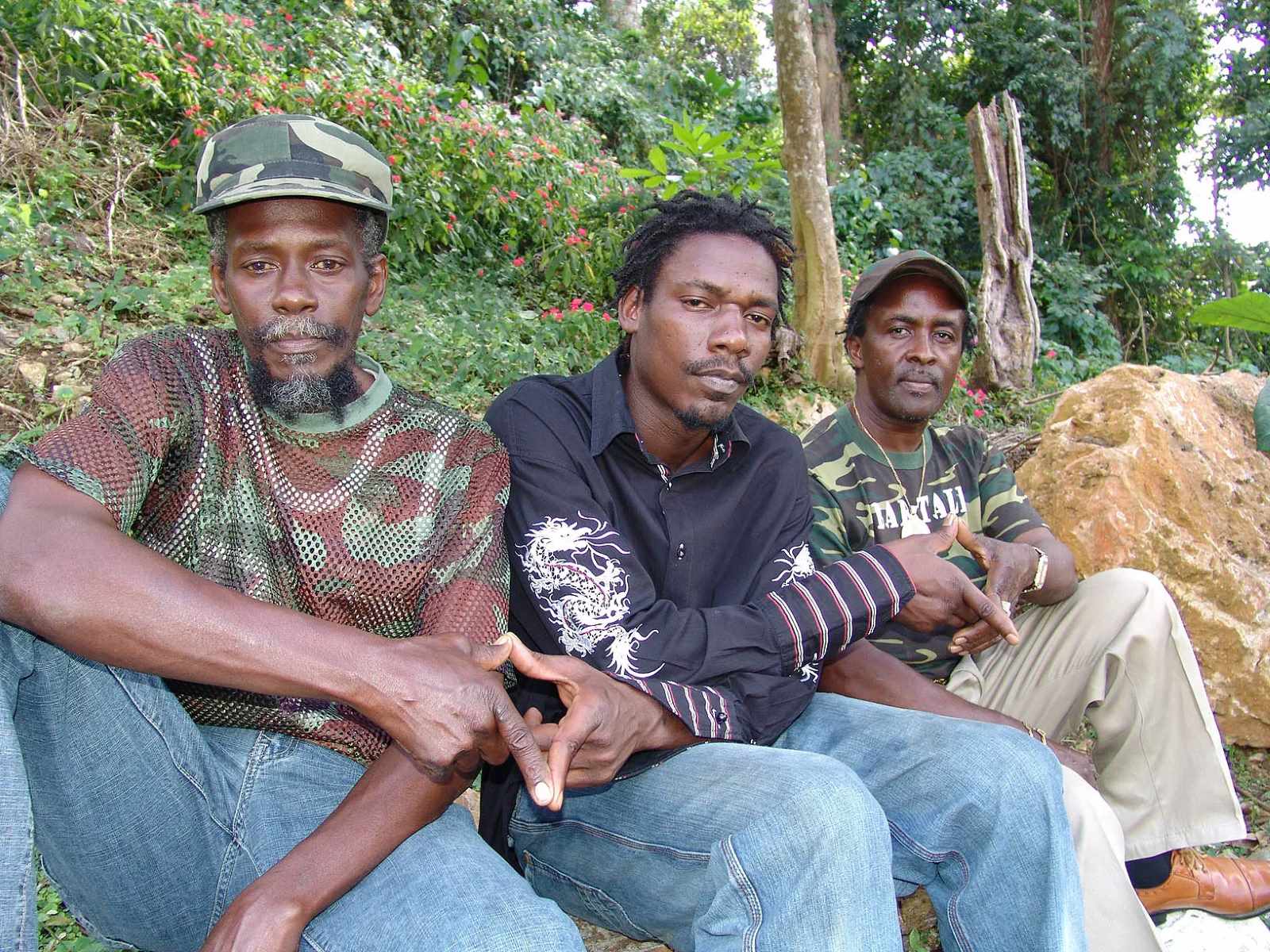

Reggae
What Culture Is Reggae From
Modified: January 25, 2024
Discover the roots of Reggae and its cultural origins. Explore the vibrant music genre that originated in Jamaica and has become a symbol of peace, love, and social justice.
(Many of the links in this article redirect to a specific reviewed product. Your purchase of these products through affiliate links helps to generate commission for AudioLover.com, at no extra cost. Learn more)
Table of Contents
Introduction
Reggae music is more than just a genre – it’s a cultural movement that originated in Jamaica in the late 1960s. With its infectious rhythms, powerful lyrics, and soulful melodies, reggae has transcended borders and captivated audiences worldwide. This article explores the origins of reggae, its roots in Jamaican culture, and its impact on the global music scene.
Reggae emerged as a unique sound, blending elements of Jamaican folk music, rhythm and blues, and ska. Its distinctive beats, characterized by the offbeat guitar and emphasis on the third beat of each bar, result in a laid-back and groovy feel. The music’s lyrical content often tackles social and political issues, promoting messages of peace, love, unity, and resistance.
The birthplace of reggae, Jamaica, played a crucial role in shaping its sound. Drawing on the island’s rich cultural heritage, reggae absorbed influences from various musical traditions, including mento, a Jamaican folk style; calypso, a Caribbean genre characterized by witty social commentary; and African drumming rhythms. This fusion of musical styles created the foundation for what would become reggae.
Furthermore, reggae music is deeply intertwined with the Rastafari movement, a religious and social movement that originated in Jamaica. Rastafarians embrace reggae as a means of spreading their spiritual beliefs and advocating for social justice. Reggae lyrics often reference Rastafarian principles, such as the worship of Jah (God), the pursuit of liberation from oppression, and the celebration of African identity.
Reggae’s popularity quickly spread beyond Jamaica’s shores, thanks in part to the legendary Bob Marley. Marley’s international success in the 1970s helped catapult reggae into the mainstream. His iconic songs, such as “One Love” and “No Woman, No Cry,” exposed people around the world to the distinctive sound and powerful messages of reggae music.
Today, reggae is celebrated and embraced by people from all walks of life. Its laid-back rhythms and positive messages resonate with listeners, providing a form of escapism and a sense of unity. Reggae festivals and concerts draw massive crowds worldwide, with artists from Jamaica and beyond carrying the torch of this influential genre.
In the following sections, we will delve deeper into the origins of reggae, the influence of Jamaican culture, the connection with Rastafari, the international spread of the music, and its lasting impact on the global music scene.
Origins of Reggae
The roots of reggae can be traced back to Jamaica in the late 1960s, where it emerged as a distinct musical style. It evolved from earlier genres such as ska and rocksteady, which were popular in Jamaica during the 1960s.
Ska, a lively genre characterized by its upbeat tempo and offbeat guitar chords, laid the foundation for reggae. With its infectious energy, ska captivated Jamaica and gained international recognition in the 1960s. However, as social and political tensions grew in Jamaica, the music began to change.
Out of this shifting cultural landscape, reggae was born. It slowed down the frenetic pace of ska and incorporated influences from American rhythm and blues. The emphasis shifted from the upbeat guitar skanks to a more laid-back sound, with a focus on the offbeat and the bassline. The bass guitar became a prominent instrument in reggae, driving the rhythm and creating a deep, hypnotic groove.
One of the key figures in the evolution of reggae was the renowned producer and record label owner, Clement “Sir Coxsone” Dodd. He established Studio One, a recording studio and label that became a hub for Jamaican music. Artists such as Bob Marley, Peter Tosh, and Bunny Wailer, who later formed the iconic band The Wailers, honed their skills at Studio One, contributing to the development of the reggae sound.
Another influential figure in the early days of reggae was Lee “Scratch” Perry. Perry was a producer and innovator known for his experimental approach to music production. He pioneered the use of studio effects and techniques such as dubbing and reverb, which added a distinct psychedelic quality to reggae music.
Reggae lyrics reflected the social and political climate of Jamaica at the time. Artists addressed issues of poverty, inequality, and political corruption, giving a voice to the marginalized and oppressed. Songs like “Get Up, Stand Up” by Bob Marley and Peter Tosh became anthems for social justice and inspired listeners around the world.
The global recognition of reggae came in the early 1970s, with the success of artists like Bob Marley and Jimmy Cliff. Bob Marley, in particular, became an international icon and ambassador for reggae music. His album “Catch a Fire” and the subsequent release “Exodus” propelled him to global stardom, and his music became synonymous with the reggae genre.
Reggae continues to evolve today, with artists pushing the boundaries and incorporating elements from other genres such as hip hop, electronic music, and dancehall. The genre’s roots in ska, rocksteady, and Jamaican culture remain integral to its identity, keeping the spirit of reggae alive and vibrant.
Jamaican Influences on Reggae
Jamaica, a vibrant and culturally rich Caribbean island, played a significant role in shaping the development of reggae music. The unique blend of influences from Jamaican culture contributed to the distinct sound and character of reggae.
One of the key influences on reggae is Jamaican folk music, particularly the traditional style known as mento. Mento originated in the late 19th century and combines elements of African rhythms, European instruments, and storytelling lyrics. It served as a precursor to reggae, providing a foundation of Jamaican musical expression.
Jamaica’s history and diverse population also played a role in shaping the sound of reggae. The island’s African heritage infused reggae with rhythms and drumming patterns reminiscent of traditional African music. These rhythmic elements can be heard in the pulsating basslines and syncopated beats that define reggae.
Furthermore, the vibrant dancehall culture in Jamaica influenced the lyrical content and vocal styles of reggae. Dancehall, a genre that emerged in the late 1970s, focuses on catchy melodies, memorable hooks, and fast-paced rhythms. The energetic and expressive nature of dancehall music seeped into reggae, adding a playful and lively dimension to the genre.
Jamaica’s socio-political climate also heavily influenced the themes explored in reggae music. The lyrics of reggae songs often touch upon social injustice, economic struggles, and political corruption, reflecting the realities faced by many Jamaicans. Artists such as Bob Marley, Peter Tosh, and Burning Spear used their music as a platform to voice the concerns and aspirations of the Jamaican people.
Reggae also drew inspiration from the Caribbean genre of calypso, which originated in Trinidad and Tobago. Calypso is known for its witty and satirical lyrics, often addressing social and political issues. Reggae artists incorporated elements of calypso’s storytelling and social commentary, infusing their music with thought-provoking messages.
The sounds of Jamaican street life, with its vibrant marketplaces and bustling neighborhoods, also found their way into reggae music. Some artists sampled everyday sounds, such as street vendors’ calls, car horns, and barking dogs, to add an authentic and immersive feel to their music.
Jamaican patois, the local dialect spoken in Jamaica, is intricately intertwined with reggae music. The use of patois in reggae lyrics adds a distinct cultural flavor and further connects the music to its Jamaican roots. It gives reggae a sense of authenticity and allows listeners to experience the rich linguistic heritage of the island.
Overall, the Jamaican influences on reggae are vast and varied, ranging from traditional folk music to dancehall culture, from African rhythms to calypso storytelling. These influences have shaped reggae into a unique and powerful genre that resonates with people from all corners of the globe.
Rastafari and Reggae
Rastafari, a religious and social movement that originated in Jamaica in the early 20th century, has had a profound impact on the development and themes of reggae music. Reggae and Rastafari are deeply intertwined, with the music serving as a medium for spreading Rastafarian beliefs and principles.
Rastafari emerged as a response to the social and economic inequalities faced by the Afro-Jamaican population. It centered around the coronation of Ethiopian Emperor Haile Selassie I in 1930, whom Rastafarians revere as the incarnation of God, or “Jah” as they refer to him. The movement emphasizes unity, equality, and the liberation of African people from colonial oppression.
Reggae became the soundtrack of the Rastafari movement, expressing its spiritual and social messages. Rastafarian beliefs and practices heavily influenced the lyrics and themes of reggae songs. Artists such as Bob Marley, Peter Tosh, and Burning Spear incorporated Rastafarian principles and symbolism in their music, addressing topics such as liberation, spirituality, and the African diaspora.
One of the key concepts in Rastafarianism that is echoed in reggae music is the belief in the divinity of Emperor Haile Selassie I. Many reggae songs pay homage to Selassie, regarding him as a symbol of hope and inspiration in the struggle against oppression. Artists often sing praises to Selassie, declaring him as the true ruler and expressing reverence for his teachings.
The Rastafarian belief in the unity of all people also finds expression in reggae music. Songs like “One Love” by Bob Marley promote the idea of unity and love among individuals, transcending barriers of race, religion, and nationality. Reggae serves as a platform for promoting peace and harmony, echoing the Rastafarian belief in the inherent connectedness of all humanity.
Moreover, reggae music is closely associated with the Rastafarian lifestyle and its cultural symbols. The iconic image of the Rastafarian flag, with its red, green, and gold colors, is widely recognized as a symbol of reggae music. Artists often incorporate the flag or its colors into album artwork and stage performances, showcasing their alignment with the Rastafarian movement.
Rastafarian language and vocabulary also find their way into reggae lyrics. The use of Jamaican patois, infused with Rastafarian terms and phrases, adds depth and authenticity to the music. This linguistic fusion further emphasizes the connection between Rastafari and reggae, creating a distinct identity for the genre.
Today, reggae continues to be a powerful medium for spreading Rastafarian teachings and raising awareness about social and spiritual issues. The influence of Rastafari on reggae music is undeniable, as their shared values of equality, unity, and resistance remain at the core of the genre.
Spread of Reggae Music Internationally
Reggae’s journey from its birthplace in Jamaica to becoming a global phenomenon is a testament to the power of its infectious rhythms and meaningful lyrics. The international spread of reggae music began in the 1970s and has continued to captivate audiences around the world ever since.
One of the key figures responsible for popularizing reggae on the international stage was the legendary Bob Marley. With his band, The Wailers, Marley’s music transcended borders and resonated with people across cultures. Through his timeless hits such as “No Woman, No Cry,” “One Love,” and “Redemption Song,” Marley became an ambassador for reggae music, spreading its message of love, unity, and social justice to audiences worldwide.
In the 1970s, reggae found a receptive audience in the United Kingdom, particularly in cities with large Jamaican immigrant populations like London and Birmingham. Jamaican artists such as Desmond Dekker, Jimmy Cliff, and Toots and the Maytals gained popularity, and their music laid the foundation for the reggae scene in the UK.
The success of reggae in the UK paved the way for the emergence of British reggae bands such as Steel Pulse and Aswad. These bands infused reggae with elements of punk rock and new wave, creating a unique sound that appealed to a diverse audience. British reggae artists, in turn, brought reggae to a wider international audience through their tours and recordings.
Reggae’s influence also spread across Europe, with countries like France, Germany, and the Netherlands developing their own reggae scenes. Reggae festivals, such as the Rototom Sunsplash in Spain and the Summerjam Festival in Germany, attracted reggae enthusiasts from all over the globe and further contributed to the international popularity of the genre.
In North America, reggae made its mark on the music landscape through the influence of Jamaican immigrants. Reggae artists from Jamaica, such as Jimmy Cliff and Burning Spear, gained recognition in the United States and Canada. Additionally, American musicians incorporated reggae elements into their own music, leading to the development of genres like reggae rock and reggae fusion.
In recent years, reggae has also gained popularity in regions such as Africa, South America, and Asia. Reggae festivals, clubs, and radio stations have sprouted up, showcasing the global reach and resonance of the genre. Artists from these regions have embraced reggae, infusing it with their local musical traditions and giving rise to exciting new hybrid genres.
The Internet has played a significant role in the global spread of reggae music, allowing artists and fans to connect and share music across borders. Online streaming platforms and social media have made it easier than ever for reggae artists to reach a global audience, breaking down geographical barriers and promoting cross-cultural collaboration.
Overall, the international spread of reggae music underscores its universal appeal. The genre’s infectious rhythms, uplifting messages, and cultural significance continue to transcend borders, bringing people together and fostering a sense of unity and shared experience across the globe.
Reggae’s Role in Jamaican Culture
Reggae music is deeply interwoven with the fabric of Jamaican culture, serving as a powerful expression of identity, resistance, and social commentary. It reflects the realities of Jamaican life and plays a significant role in shaping the cultural landscape of the island.
Jamaican culture is a vibrant fusion of African, European, and Caribbean influences, and reggae serves as a sonic representation of this rich heritage. The music serves as a social barometer, offering a platform for artists to address pressing issues and provide a voice for the marginalized and oppressed.
Reggae’s lyrics often tackle the social and political challenges faced by Jamaicans, shedding light on issues such as poverty, inequality, and political corruption. Songs like “Equal Rights” by Peter Tosh and “War” by Bob Marley served as anthems for social justice, amplifying the voices of the Jamaican people and calling for positive change.
In addition to its lyrical content, reggae music plays a crucial role in Jamaican social gatherings and celebrations. The infectious rhythms and catchy melodies of reggae are a staple at parties, dancehall sessions, and festivals. It provides the soundtrack for Jamaicans to let loose, dance, and come together in unity and celebration.
Reggae is also closely linked to Jamaican spirituality. The music draws inspiration from the Rastafari movement, which has a significant presence in Jamaican culture. Rastafarians embrace reggae as a means of spreading their spiritual beliefs, expressing the importance of African identity, and advocating for social justice.
Moreover, reggae serves as an outlet for Jamaican artists to express their creativity and showcase their talent. Jamaican musicians have been instrumental in shaping reggae’s sound and global influence. Artists like Jimmy Cliff, Burning Spear, Toots and the Maytals, and many others have made significant contributions to reggae music, propelling the genre onto the international stage.
Reggae’s impact extends beyond the music itself and encompasses Jamaican fashion, language, and visual arts. The vibrant and colorful aesthetics associated with reggae have influenced Jamaican fashion, with bold patterns, Rastafarian colors, and dreadlocks becoming iconic representations of Jamaican culture.
Reggae has also inspired Jamaican visual artists, who incorporate reggae themes and symbols into their work. The music’s cultural significance is often captured in paintings, sculptures, and other forms of artistic expression, further solidifying its role in Jamaican culture.
Overall, reggae music is deeply ingrained in Jamaican culture, reflecting the island’s history, struggles, and triumphs. It amplifies the voice of the Jamaican people, celebrates their resilient spirit, and provides a means of expression and unity. Reggae’s influence extends far beyond the shores of Jamaica, but its cultural significance remains deeply rooted in the island’s identity.
Impact of Reggae on the Global Music Scene
Reggae music has had a profound impact on the global music scene, transcending borders and influencing countless artists in various genres. Its infectious rhythms, powerful messages, and unique sound have left an indelible mark on the music landscape worldwide.
One of the key figures responsible for introducing reggae to a global audience was Bob Marley. His international success in the 1970s brought reggae into the mainstream and exposed people from all walks of life to its energy and soulful melodies. Marley’s music spoke to universal themes of love, peace, and social justice, resonating with listeners around the world.
The influence of reggae can be heard in a wide range of musical genres, with artists incorporating elements of reggae into their own compositions. From pop and rock to hip hop and electronic music, reggae’s infectious rhythm and distinct basslines have become a staple in many crossover hits.
Reggae’s laid-back and groovy feel has influenced popular music beyond Jamaica’s shores. Artists like Santana, The Police, and Sublime have drawn inspiration from reggae, infusing their music with reggae’s distinctive sound and incorporating elements of the genre into their own compositions.
Dancehall, a subgenre of reggae, has also made a significant impact on global music. Its fast-paced rhythms and energetic music production have influenced the development of genres like hip hop, electronic dance music, and pop. Artists such as Rihanna, Drake, and Major Lazer have embraced dancehall’s infectious beats, bringing these influences to a wider audience.
Reggae’s influence has also extended to the lyrics and themes explored in music around the world. Many artists have taken inspiration from reggae’s tradition of social commentary, using their music as a vehicle to address social and political issues. The messages of unity, love, and resistance found in reggae have found resonance in various genres and helped shape the global narrative.
Reggae festivals and events have become a global phenomenon, attracting artists and fans from all corners of the globe. Events like the Reggae Sumfest in Jamaica, Rototom Sunsplash in Spain, and the Sierra Nevada World Music Festival in the United States have become annual gatherings for reggae enthusiasts, fostering a global community united by a love for the genre.
Reggae’s global impact goes beyond just its influence on music. The music has become a symbol of Jamaican and Caribbean culture, capturing the spirit and resilience of the people. It has helped shape perceptions of the Caribbean as a vibrant and culturally rich region, attracting tourists and showcasing the diversity of the area.
Overall, the impact of reggae on the global music scene is undeniable. Its infectious rhythms, powerful messages, and cultural significance have resonated with audiences worldwide, influencing genres across the musical spectrum and leaving an enduring legacy on the world’s musical landscape.
Conclusion
Reggae music’s journey from its origins in Jamaica to becoming a global phenomenon is a testament to its infectious rhythms, powerful messages, and cultural significance. It emerged as a distinct genre in the late 1960s, blending influences from Jamaican folk music, rhythm and blues, and ska. Reggae’s laid-back groove, thought-provoking lyrics, and distinctive sound captured the hearts of people around the world.
Jamaica, with its rich cultural heritage, played a crucial role in shaping reggae’s identity. The influences of Jamaican folk music, African rhythms, calypso, and the socio-political climate gave birth to a genre that served as a voice for the marginalized and a platform for social commentary.
Reggae’s connection with the Rastafari movement further deepened its cultural significance. Rastafarians embraced reggae as a means of spreading their spiritual beliefs, advocating for social justice, and celebrating African identity. The Rastafarian influence, along with the vibrant Jamaican culture, is embedded in the sound, lyrics, and visual representation of reggae.
Reggae quickly spread beyond its shores, thanks in part to the international success of artists like Bob Marley. Reggae’s infectious beats and meaningful messages resonated with audiences worldwide. The genre found its way into the global music scene, influencing various genres and artists who incorporated elements of reggae into their music.
Reggae’s impact goes beyond music alone. It has become a symbol of Jamaican and Caribbean culture, showcasing the spirit, resilience, and vibrancy of the people. Reggae festivals and events draw crowds from around the world, fostering a sense of community and unity among reggae enthusiasts.
In conclusion, reggae music’s influence on the global stage is undeniable. Its powerful rhythms, socially conscious lyrics, and cultural significance continue to captivate audiences and transcend borders. From its roots in Jamaica to its global reach, reggae has left an indelible mark on the world’s music landscape, promoting unity, love, and social justice along the way.

